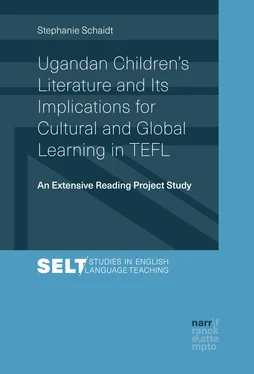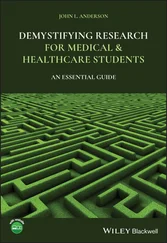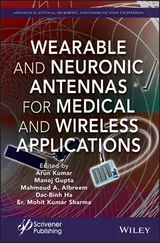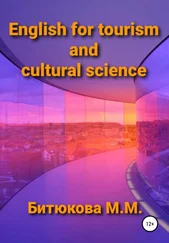understand and critically reflect global interdependencies, own values and attitudes, develop own positions, see options, capability to make choices, to participate in communication and decisions within a global context. (Ibid.)
Documents such as the “Maastricht Global Education Declaration” (North-South Centre of the Council of Europe, 2002), the “UN Decade (2005–2014)” (UNESCO, 2005), the Oxfam brochure “Education for Global Citizenship: A Guide for Schools” (Oxfam, 2006) and the Orientierungsrahmen für den Lernbereich Globale Entwicklung [Orientation Framework for the Learning Area of Global Development] (Appelt et al., 2007; Siege, Schreiber, & Appelt, 2015) provide guidelines for global education and learning on an international and national level. In Germany, the Orientation Framework for the Learning Area of Global Development is the most prominent guideline. This document which was published by the Kultusministerkonferenz (KMK)1 and the Federal Ministry for Economic Cooperation and Develoment (BMZ) is competence oriented; it differentiates global learning into three competencies: Erkennen [Noticing], Bewerten [Evaluating] and Handeln [Acting]. These competencies are oriented towards the concept of sustainable development. The framework is not only cross-curricular but also meant as a framework for educators of learners of different ages and learning levels (from kindergarten to tertiary level).
Global learning in Germany is rooted in various educational relevant theories. After the Second World War development education and the so called ‘Third World’ pedagogy emerged. In the 1950s, the first development aid associations such as Misereor (1958), Brot für die Welt (1959), BMZ (1961) and Deutscher Entwicklungsdienst (1963) were founded and became increasingly engaged in the sensitisation of society to the suffering of the people in the so called ‘Third World’. Their pedagogical concept, which encouraged people to reflect upon the ‘deficits’ of people in the ‘Third World’ and to think of ways of how they can be helped to overcome these, was also applied to youth work and schools. In the late 1960s, against the background of political upheaval in Germany, the notion of development education underwent politicisation. The reception of dependency theories created new impulses in discussions about ‘development’ and approaches of ‘development aid’ were reconsidered. Increasingly the role of the Global North in the exploitation of the Global South was taken into account. In consequence of critical perspectives on development, the concept of development education was also developed further. There was a shift away from a mere focus on economic dimensions of development to the inclusion of various other concepts such as culture, education, human rights, environment and emancipation. Increasingly, overlaps with similar fields such as peace education and environment education became apparent (see Asbrand & Scheunpflug, 2014, pp. 401–402; Seitz, 1993).
From the 1990s, a shift away from the term ‘development’ to the term ‘global’ could be observed. In Germany, the term Globales Lernen (global learning) now prevailed. It was increasingly acknowledged that the world is more complex than a Global North versus a Global South; mere educational work concerning problems of ‘the poor’ became questionable. Since then, the concept of global learning has been developed further by various scholars and has taken different directions. Bühler (1996) is an advocate of a normative perspective that is based on a holistic worldview, whereas Scheunpflug and Schröck (2002) represent a rather evolutionary, system-theoretical perspective (see Asbrand & Scheunpflug, 2014, pp. 402–403).
In the EFL classroom, global education may be considered to have its origin in the politically oriented Landeskunde approaches of the 1970s and 1980s (see Chapter 2.1). It gained momentum, however, around the turn of the millennium (Volkmann, 2015, p. 29). Since then, scholars have increasingly suggested going beyond culturalist assumptions and including global issues in TEFL. Very influential in this context, is the spread of the English language across the world. English is considered a global language and it is increasingly used as lingua franca by people worldwide (see Crystal, 2012; Seidelhofer, 2011). Pennycook (2007, p. 6) points to the strong link of English to processes of globalisation:
English is a translocal language, a language of fluidity and fixity that moves across, while becoming embedded in, the materiality of localities and social relations. English is bound up with transcultural flows, a language of imagined communities and refashioning identities.
Under the influence of these developments and postcolonial discourses, the call for a shift beyond the hitherto dominant countries in the EFL classroom, Great Britain and the USA, becomes louder.
Furthermore, the fact that the English language is less seen as a language of native speakers than a language for learning about the world and communicating with people all around the world (Cates, 2004b, p. 242) means that “any country and its locally as well as globally relevant topics could be deemed worthy of inclusion” (Volkmann, 2015, p. 30). Against this background of English as a global language, Doyé (1999, p. 98) pleads for an integration of global issues in the EFL classroom, a concept he calls world studies:
even an extended concept of cultural studies […] cannot fulfil the task of providing appropriate cultural contents for the teaching of English as a global language alone , and therefore cultural studies, in my opinion, have to be complemented by what has become known as world studies. […] It starts from the global issues of this world such as starvation, suppression, ecological destruction, illiteracy, aggression and shows their global dimension.
Volkmann (2015, p. 29) sees another reason for the establishment of global education in FLT in Germany in what he calls the “twin dilemma” in FLT discourses in the 1990s: The communicative turn brought about concepts of FLT which were primarily pragmatic and utilitarian. The CEFR (2001), for example, focuses on communication “at the cost of neglecting skills or competence in the time-honored educative fields of literature, aesthetics, education, political education, etc” (ibid.). The integration of global issues in this context has meant a shift to a more content-driven and educationally relevant foreign language classroom which many opponents of the CEFR have welcomed. Also on an international scale, scholars regarded global education as a way to resolve perpetual challenges of FLT:
English language teaching has been bedevilled with three perennial problems: the gulf between classroom activities and real life; the separation of ELT from mainstream educational ideas; the lack of a content as its subject matter. By making Global Issues a central core of EFL, these problems would be to some extent resolved. (Maley, 1992, p. 73)
A scholar in the field of global education in the foreign language classroom who is well-received and widely cited in EFL didactics in Germany is Kip Cates, an English language educator based in Japan (Blell & Doff, 2014; Florio-Hansen, 2010; Hammer, 2012a; Lütge, 2012b, 2012c, 2015b). Cates defines global education as
an approach to language teaching which aims at enabling students to effectively acquire and use a foreign language while empowering them with the knowledge, skills and commitment required by world citizens for the solution of global problems. (1990, p. 3)
For him it involves the integration of global issues such as peace, development, environment and human rights in the foreign language classroom and the focus on concepts such as social responsibility and world citizenship. He divides global education into four component fields: “peace education, development education, environmental education and human rights education” (2004b, p. 241).
Читать дальше












